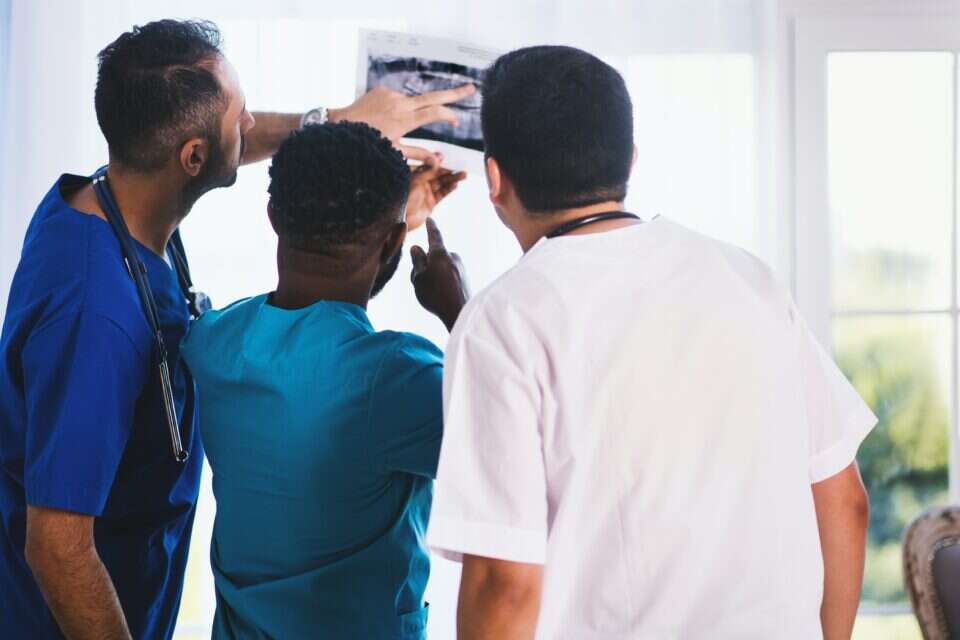In collaboration with Zap Doctors
When we talk about "the disease" or about cancer, we are actually talking about a huge group of different diseases, each of which has a different incidence, different treatment and different treatment methods.
The types of tumors are divided into several subgroups, according to the original tissue from which the cancer grew.
When the source of the cancer comes from soft tissues, it is a sarcoma.
Retroperitoneal sarcoma is a type of cancer that originates in the soft tissues of the retroperitoneum, which is the area behind the abdominal cavity.
On the one hand, it is a relatively rare type of cancer.
On the other hand, it is often diagnosed late because it often does not cause symptoms in the early stages of the disease.
The meaning, unfortunately, is often a diagnosis of the tumor after it has already reached a size of tens of centimeters.
"Early diagnosis is the most important thing when it comes to cancer, so it is important to know this type of cancer and its symptoms," says Dr. Yonatan Dema, a senior oncological surgeon at Hadassah Ein Kerem Hospital. "These types of tumors are more likely to appear in men than in women And they are most often diagnosed in people between the ages of 50 and 70. Symptoms may include abdominal pain, bloating, weight loss, and feeling a lump in the stomach.
Many times the retroperitoneal mass is seen in an examination that was performed for another reason at all."
How is retroperitoneal sarcoma diagnosed?
"Diagnosis includes imaging tests such as CT or MRI scans and usually also a biopsy of the lump to examine tissue samples under a microscope. A biopsy is the only way to confirm a diagnosis of cancer."
But if
there is a lump that needs to be operated on, why should a biopsy be done?
"Because the treatment varies according to the subtype of the sarcoma. There are several types of sarcoma that can arise from the soft tissues of the retro-peritoneum. The most common are: liposarcoma - a sarcoma that developed from fat cells and is the most common type; heliomyosarcoma - a sarcoma that developed from smooth muscle cells, usually from blood vessels and rhabdomyosarcoma - a sarcoma that developed from skeletal muscle cells and is more common in children. The treatment, as mentioned, will depend on the specific type of sarcoma and the stage of the cancer."
What are the different treatments offered?
"Retroperitoneal sarcoma treatment usually includes a combination of surgery, which is often the mainstay of treatment, with chemotherapy and radiation therapy. This is a massive operation. Since the goal is to remove the tumor in its entirety to be sure that no cancer cells remain, we need to remove the entire tumor area, Including all the organs located in the same area, such as the kidney, pancreas or colon. Depending on the type of sarcoma, we sometimes want to add chemotherapy or radiotherapy before or after surgery."
Dr. Dema explains that "the specific treatment plan for retroperitoneal sarcoma depends on the type, size, location of the tumor, the stage of the cancer and the general health of the patient.
It is very important to discuss each patient in a multidisciplinary team meeting that includes an oncologist, an oncological surgeon, a pathologist and a radiologist specializing in sarcomas."
You mentioned that often the tumor is discovered at a late stage.
Are there additional treatments in case the initial treatment is not enough?
"There are several treatment options that can be used for specific cases: Immunotherapy - a treatment that uses the body's own immune system to fight cancer and is used for people with advanced cancer that have not responded to other treatments. Another option is targeted therapy that targets specific genes or proteins involved in the growth and spread of the cancer, and it is often given in combination with chemotherapy. Of course, there are also clinical trials, studies that test new treatments in patients, which may offer access to experimental treatments that are not yet widely available."
Dr. Dema points out: "It is important to know that even when the tumor is inoperable, supportive care, such as pain management and nutritional support, may be an important part of the treatment."
What are the chances of the tumor returning after surgery?
"The risk of recurrence of retroperitoneal sarcoma after treatment varies according to several factors, including the specific type and stage of the cancer, the effectiveness of chemotherapy and radiotherapy. In general, the risk of recurrence is higher in patients with more advanced stages, or in patients who have undergone surgery and failed to remove the cancerous tissue with margins healthy
Recurrence can be more local or appear as metastases, and long-term oncological follow-up is necessary after treatment."
What is the survival rate of patients with retroperitoneal sarcoma?
"Survival rates vary according to the individual data of each patient - the type and stage of the cancer, the age of the patient and his general health. Some types of retroperitoneal sarcoma are more aggressive and have a poor prognosis, while others may be very slow growing and have a better prognosis. In general, the more sarcoma "Retroperitoneal is diagnosed and treated earlier, the better the chances of survival."
What is your recommendation for patients with a new diagnosis?
"It is important to be treated at a medical center that has experience in treating sarcomas, as these types of cancer can be complex and require special treatment."
<iframe src="https://www.doctors.co.il/israelhayom/?cid=80331679" width="100%" height="380"></iframe>
Dr. Yonatan Dema is a surgeon in the Department of General Surgery at Hadassah Ein Kerem Hospital
Phone - 053-9419647
Stand by Zap Doctors
In collaboration with Zap Doctors






